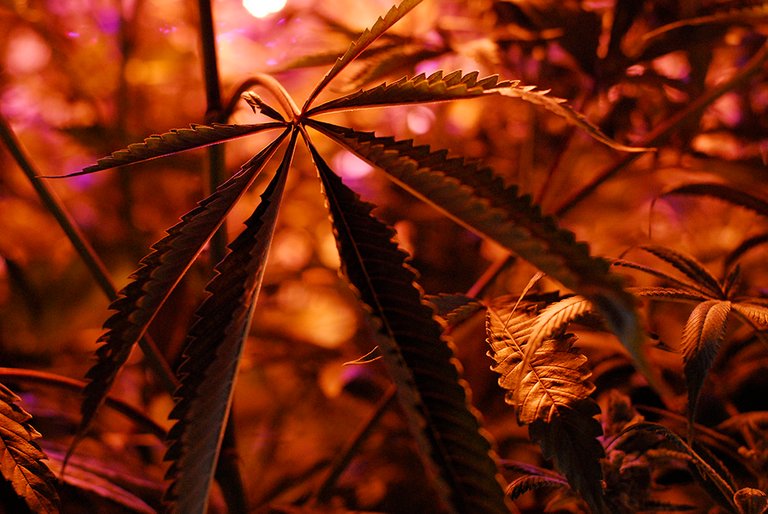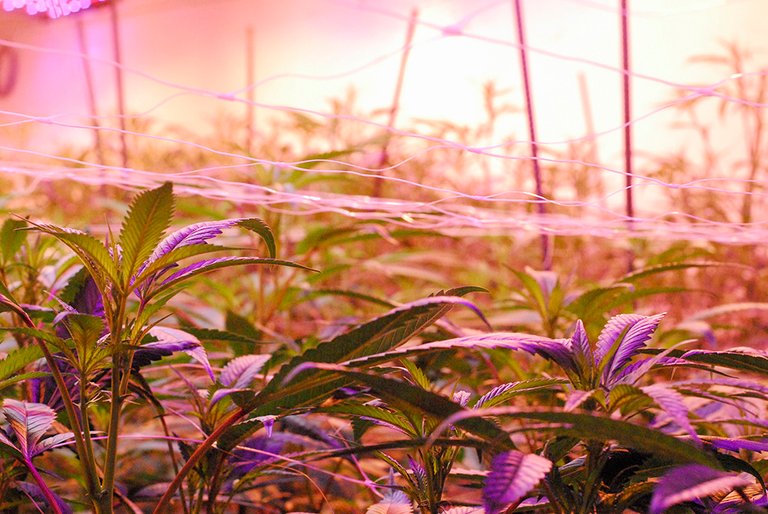In case you missed it, there is a lawsuit against the Department of Justice, the Drug Enforcement Agency, and Attorney General Jeff Sessions – the text of which reveals the history of the 12,000-year relationship between humans and cannabis and how prohibition not only negatively affects the plaintiffs but potentially all humankind.
The suit is filed in the Southern District U.S. Court in New York on behalf of former NFL player Marvin Washington; disabled U.S. Military veteran Dean Bortell and his daughter Alexis, now 12-years-old, who suffers from intractable epilepsy; Sebastien Cotte, father of Jagger, a now 7-year-old boy suffering from Leigh’s Disease; Jose Belen, a 70 percent disabled Operation Iraqi Freedom veteran; and the Cannabis Cultural Association.
The Plaintiffs
Alexis, who resides with her family in Colorado as a “medical refugee,” is originally from Texas. She has received the most national attention for her role in the suit, catching headlines like “12-Year-Old Sues Attorney General Jeff Sessions to Legalize Medical Marijuana.” She’s also written a book called “Let’s Talk About Medical Cannabis: One of the Earliest Medical Communities Seen Through the Eyes of its Youngest Advocate.” Her father, Dean, is a 100 percent disabled Navy veteran.
Washington, another resident of Texas who in 1999 won a Super Bowl with the Denver Broncos, currently works with Swiss firm Isidiol that manufactures CBD products. According to the suit, Washington eyes expanding his business to include whole-plant cannabis products – and would like to receive federal funding through the Minority Business Enterprise Program to expand his business but is unable to do so due to cannabis’ Schedule I federal status.
Belen, 35 and from Florida, is an Operation Iraqi Freedom veteran who is diagnosed with post-traumatic stress disorder. According to the complaint, Belen is “unable to forget and/or otherwise cope with his memory of the horrors of war that he had witnessed in Iraq.”
Jagger, who lives in Georgia with the family, might not be alive if not for cannabis. Leigh’s Disease kills “approximately 95 percent of people afflicted with it” if diagnosed before age two by the time they are 4-years-old, the suit says. Jagger was diagnosed at age one. He is now seven.
The Cannabis Cultural Association is a New York-based non-profit which helps “marginalized communities engage in the legal cannabis industry, emphasizing criminal justice reform, access to medical cannabis, and adult use legalization.”
The Defendants
Jeffrey Beauregard Sessions III, former Alabama Senator and Attorney General of the United States since 2017. Sessions might be most infamous to the cannabis community for saying that “good people don’t smoke marijuana” and for rescinding federal protections for state-legal cannabis programs outlined in the Cole Memo.
The U.S. Department of Justice, the federal agency headed by Sessions responsible for enforcing U.S. law, including the crimes violating the Controlled Substances Act. Under the Barack Obama Administration, the Justice Department had taken a hands-off approach to state-approved cannabis programs with a directive known as the Cole Memo. Sessions rescinded that memo in January.
Charles “Chuck” Rosenberg and the Drug Enforcement Agency. The lawsuit contends that the DEAs “legal mechanism available to the public to file petitions to change the classifications of drugs and medications previously scheduled under the auspices of the CSA is illusory.”
The suit points to eight such attempts by governors, individuals, and organizations to de-schedule or reschedule cannabis under the CSA that were either denied or declined by the DEA. One, by the Hemp Industries Association and the Kentucky Hemp Industry Council, filed last June is still pending. However, in 1999 – after four years of consideration – the agency granted a request by UNIMED Pharmaceuticals Inc, manufacturers of Marinol, to reclassify the drug from Schedule II to Schedule III. Marinol, a synthetic cannabinoid, was approved by the Food and Drug Administration in 1985 to “treat nausea and vomiting associated with cancer chemotherapy in patients who have failed to respond adequately to conventional treatments” and to “treat appetite loss associated with weight loss in AIDS patients."
Rosenberg once quipped that medical cannabis is “a joke.”

Under the glow of LED grow lights inside of a Washington cannabis cultivation center. Photo credit: Sarah Climaco
(Some of) the Claims
The lawsuit contends that the placement of cannabis on the federal drug schedule is unconstitutional, violating due process protections of the Fifth Amendment of the Constitution. The federal government, it says, “does not believe, and upon information and belief never has believed” cannabis meets the requirements for a Schedule I designation under the CSA.
“Indeed, the Federal Government has admitted repeatedly in writing, and implemented national policy reflecting, that cannabis does (sic), in fact, have medical uses and can be used and tested safely under medical supervision. On that basis, the Federal Government has exploited Cannabis economically for more than a decade by securing a medical cannabis patent and entering into license agreements with medical licensees,” the suit says.
It points out that the government has had a federal program since the 1970s which supplies patients with medical cannabis.
“The notion that the Federal Government genuinely believes that cannabis has no medical application and is so dangerous that, as with heroin, it cannot be tested even under strict medical supervision, is so absurd that it must be rejected as a matter of law. The Federal Government does not believe in the factual prerequisites underlying its own statute,” the lawsuit contends.
Secondly, the lawsuit argues that the federal Schedule I classification was implemented during the Nixon Administration’s “war” on African-Americans and “anti-war hippies” as a means to arrest and jail leaders of those communities.
The lawsuit claims that prohibition violates citizens’ right to travel due to the current state-by-state patchwork of laws and that the federal government’s cannabis classification violates the Tenth Amendment of the Constitution because the government is regulating intra-state commerce.
“While empowered by Article I to regulate interstate and international commerce, Congress does not have the authority to regulate purely intra-state activities which do not have any impact on the national economy,” the suit states. “Any use of medical Cannabis that is legalized and regulated entirely within an individual State's borders does not have any appreciable impact on the national economy. And Congress, in enacting the CSA, never believed that the cultivation, distribution and sale of Cannabis, purely at the intra-state level, ever affected or will affect the national economy.”
The Government response
Obviously, the government is seeking to have the case tossed, arguing, primarily, that the “plaintiffs failed to exhaust an available administrative remedy – the statutory rescheduling process – before bringing the lawsuit,” and that previous cases have already rejected the lawsuit’s premises.
“There is no fundamental right to use marijuana, for medical purposes or otherwise,” the government’s Motion to Dismiss states. “Because such a right is not ‘implicit in the concept of ordered liberty’ or ‘deeply rooted in this Nation’s history,’ the Court should reject such a claim.”
The plaintiffs’ attorneys contend that the government’s response is “a regurgitation of prior claims, made by different litigants, who relied upon arguments and claims” their clients “do not make, under different circumstances, in many instances more than 20 years ago.”
“There is a substantive due-process violation because the government can’t possibly believe that cannabis should be Schedule I.”
Joseph Bondy, a CCA executive board member and life member of the National Organization for the Reform of Marijuana Laws’ National Legal Committee, is one of the attorneys fighting the government on behalf of the plaintiffs. The CCA is pursuing the claim that cannabis’ Schedule I status violates the Equal Protection Clause of the Constitution because the laws “are grounded in discrimination and applied in a discriminatory fashion,” Bondy said in an interview with Ganjapreneur.
“These laws continue to impact communities of color disparately and unfairly,” Bondy explained. “The proof is in the pudding, so to speak.”
Among those testifying on behalf of the plaintiffs is Roger Stone – a member of the Nixon Administration who can speak directly to Nixon's former White House Counsel and Chief Domestic Policy Advisor John Ehrlichman’s bigoted reasoning for ensuring cannabis was, not only scheduled under the CSA, but branded “highly addictive” with “no medical use.”
Bondy said that the allegations raised in the complaint “have to be presumed as true” and that government lawyers are arguing that the team has “failed to state claims upon which relief can be granted.”
“We feel strongly we are going to win,” he said, conceding that while other cases challenging cannabis’ scheduling have been ruled in the government’s favor, this case challenges different facts and several factors add to the case’s strengths — public opinion, research, and “legislative opinion as far down the road on legalization” as it is now.
“If we win the claim that the controlled substances act is unconstitutional as it pertains to marijuana it means that marijuana would be de-scheduled,” Bondy stated, matter-of-factly, “until such time as there is some further Congressional enactment.”
The reality is, Bondy admits, that if the case survives this lower court – and the government’s motion to dismiss – the government will, of course, appeal the ruling and whoever loses that case would appeal that ruling to the U.S. Supreme Court. All of this could take years, but Bondy suggested that during that time Congress could take action on cannabis’ status, rendering the whole suit “moot.”
“We don’t care how we get to legalization – the fastest course is the best course – but this seems to be a track that is moving forward at a pretty rapid pace,” he explained, noting that the judge granted oral arguments the day after Sessions rescinded the Cole Memo.

Inside of an indoor, medical cannabis grow operation. Photo credit: Sarah Climaco
Unfortunately, Bondy explained, if the lawsuit were successful and cannabis was indeed de-scheduled, it would not release individuals being held on federal and state cannabis crimes but they would have standing to seek to have the convictions vacated and be released from jail under a “writ of habeas corpus.”
Bondy says the government “can’t have it both ways” – they cannot hold a patent for cannabis as a neuroprotectant, they cannot give patients medical cannabis, and cannot issue federal memos choosing not to crack down on violations of federal law while maintaining that cannabis “has no medical value” and “a high potential for abuse.”
“The notion that marijuana should remain a Schedule I is absolutely foolish,” Bondy said. “No one believes it. The Surgeon General doesn’t believe it, half of Congress doesn’t believe it, politicians don’t believe it, Jeff Sessions probably doesn’t even believe it.”
Oral arguments to determine whether the case will be thrown out are set for Wednesday.
Posted from my blog with SteemPress : https://www.ganjapreneur.com/federal-case-challenging-constitutionality-of-cannabis-prohibition-heads-back-to-court-on-valentines-day/
I eish the government could pull thier heads out of thier asses already.
You'll probably be wishing for the rest of your life, sadly .
sadly. i would agree with that. fuuuuuccckkkkkk!!!!!!!
I remember hearing about Alexis when she was 9 or 10, and hearing some of her speeches. It was difficult to believe that someone who young was able to speak so eloquently in front of large audiences without sounding even remotely nervous. The fact that the law prevents her from living in her home state and using her medicine is testiment to the fact that the law is deeply flawed.
Very interesting, we in Russia are tough with this all, punish in full!
What is missing from the global narrative (shaped by US policy over the last 50 years) is that this plant actually helps people who are sick. Pharmaceutical companies, private prisons, drug-testing companies, tobacco & big alcohol all work to enforce the narrative that only "stoners" and lazy people consume cannabis.
Yes, as a medicine and help to the sick it is right, it is necessary to fight for it.